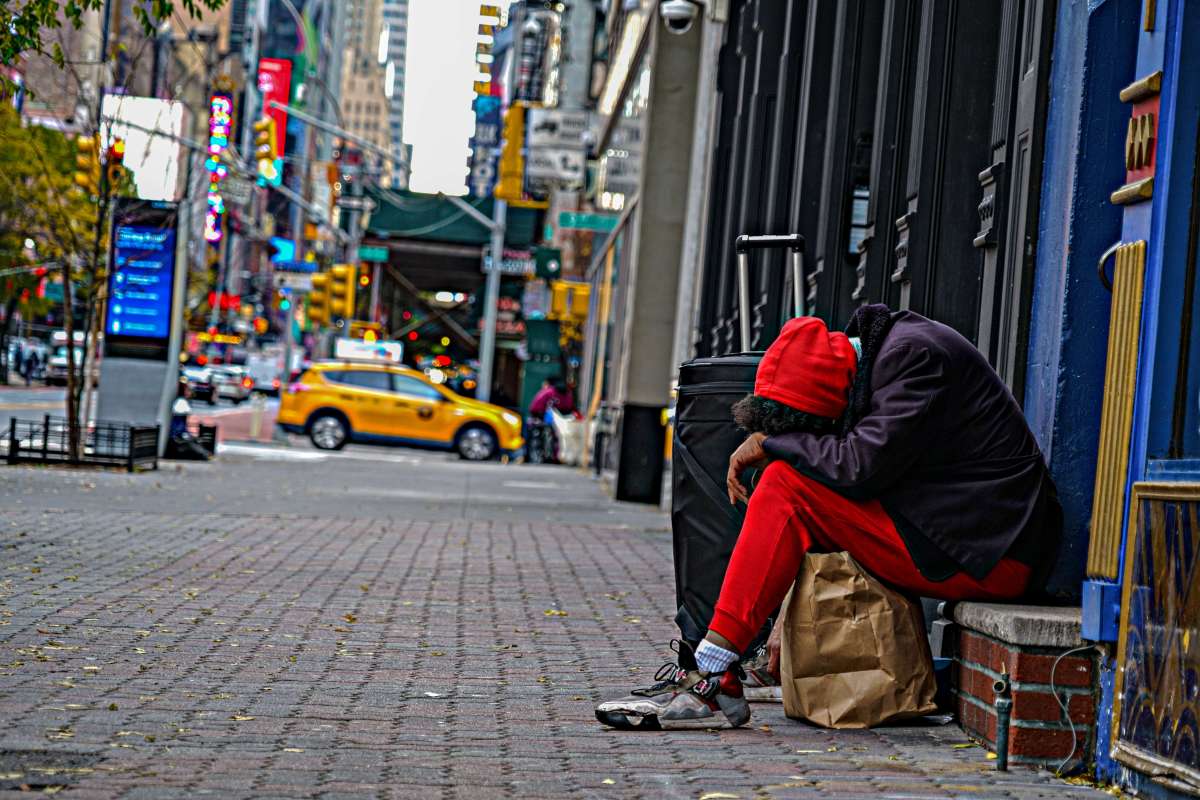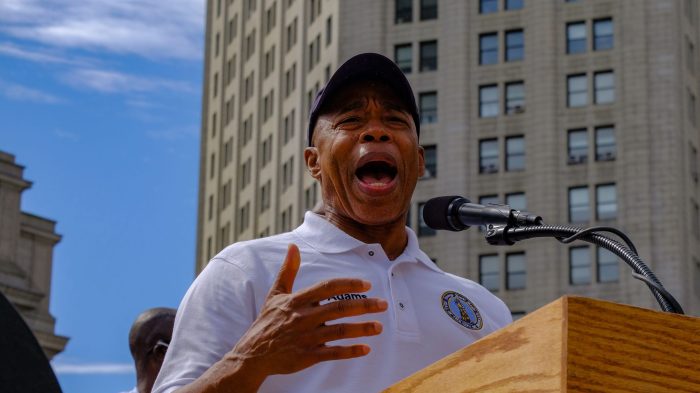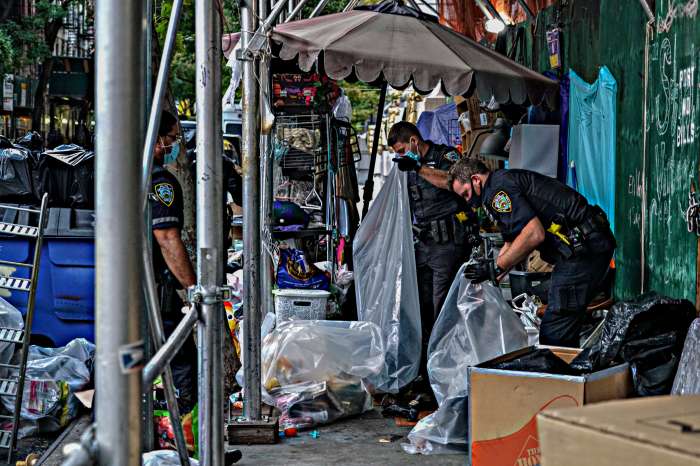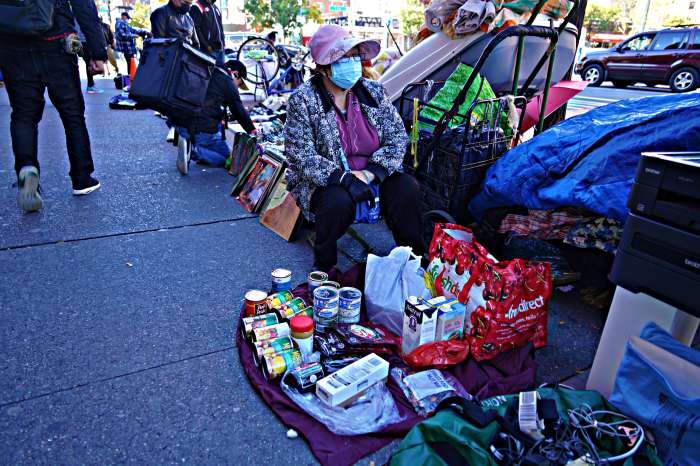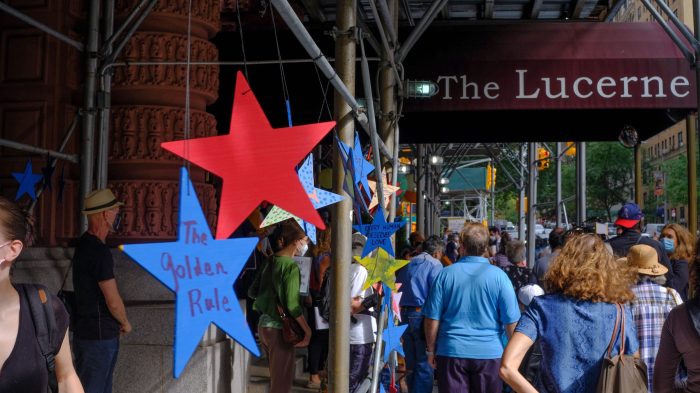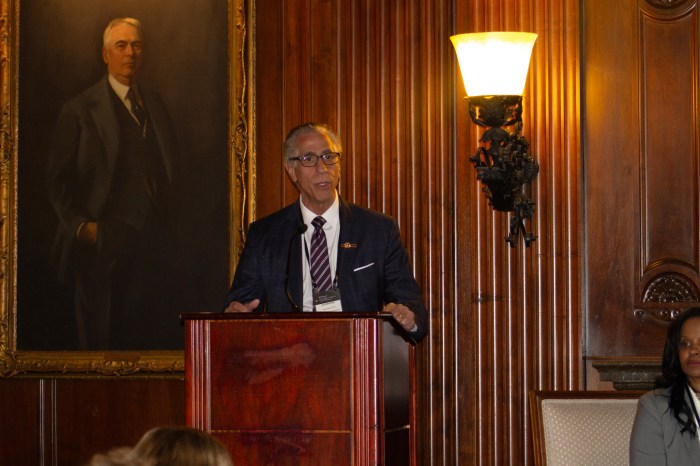The New York City Council is expected to pass on Thursday legislation that would substantially increase the value of housing vouchers and enable families living in city homeless shelters to find a home of their own that they can afford.
City Council Speaker Corey Johnson, Brooklyn City Council Member Stephen Levin and homeless advocates — including former Speaker Christine Quinn — announced the agreement Tuesday at a homeless shelter in Harlem.
Quinn currently serves as president and CEO of Win, the nonprofit which operates the Harlem shelter and dozens of other shelter and supportive housing facilities for homeless families. She said the imminent passage of Intro. 146 would move the city “one step closer to breaking the cycle of homelessness.”
Tens of thousands of New Yorkers are currently without a home; according to Johnson’s office, 48,245 people slept on Monday night, May 24, in a shelter operated by the Department of Homeless Services.
But many homeless families are unable to afford their own home due to the presently low value of CityFHEPS housing vouchers, which max out at $1,265 per month for one individual to $1,580 per month for a family of four. Those rates failed to meet the median rent for a two-bedroom apartment in any New York City neighborhood, based on data from StreetEasy.
“Expecting a family of four to find an apartment for $1,580 a month in New York City is just absurd,” Johnson said. “Yet that’s what we’ve done for years and then wondered why our homeless shelters were full.”
Intro. 146 would mandate that CityFHEPS housing vouchers be directly tied to the Fair Market Rent as designated by the federal government. That would bump up the voucher value for one individual from $1,265 to $1,900; and, for a family of four, from $1,580 to $2,217.
Based on those figures and the StreetEasy data, the increased vouchers would allow families to afford the median rent for a two-bedroom unit in 25 New York City neighborhoods.
According to Quinn, the increased housing vouchers will allow up to 2,700 families over the next five years to exit the shelter system and return to independent living. It’s expected that the vouchers, combined with ending the city’s practice of renting hotel rooms as homeless shelters, will ultimately save the city $102 million over the same period.
“For years, New York City provided families in shelter with vouchers that couldn’t pay the rent. We offered them hope, but never delivered them solutions that could help — a cruel bait-and-switch that left families struggling,” she said. “With the passage of Intro. 146, thousands of New York City homeless families will finally have vouchers that can actually help them find apartments and exit shelter.”
Levin is the lead sponsor of Intro. 146, which has a supermajority of 40 City Council members sponsoring the legislation. It’s expected to pass with little opposition at the Council’s next stated meeting on May 27.
“The change to raise voucher amounts is an investment in housing and the fight against homelessness, and an affirmation of the human right to housing,” Levin said.
Numerous advocates for homeless New Yorkers agreed.
“A voucher system that works is cheaper than a shelter bed,” said homeless advocate Shams DaBaron. “This has been a three-year fight, and those of us who have been the victims of the city’s irrational homeless policy have been on the front lines. Unlike the past, those of us who are directly impacted have a seat at the table, and as you see today, a hand in charting their own futures.”



